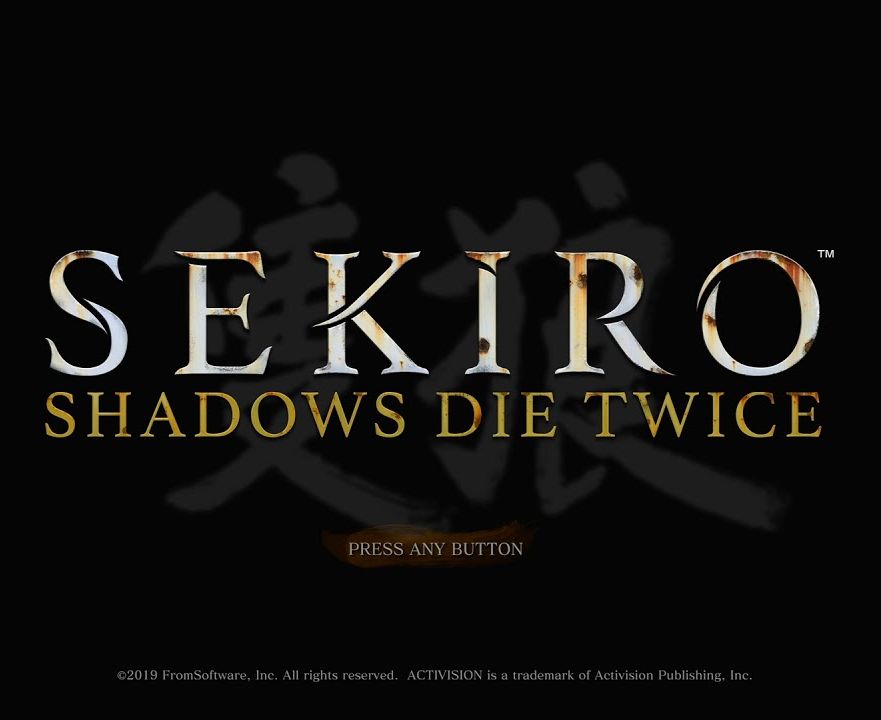
For a rough idea of how much was unavoidably lost in translation, check out my article on the Japanese words for “I” and “me”, then multiply that by a thousand. I have no doubt that localizing Sekiro was a difficult task from beginning to end.
Anyway, I recently stumbled upon some online comments by Japanese players regarding Sekiro’s English translation. I thought they were pretty interesting, so I’ve translated some of them below. As always, these comments shouldn’t be considered representative all Japanese fans – they’re just a few random comments from random people.
MY NAME IS ___!
An early boss in the game is a big guy on a horse named Oniwa Gyoubu Masataka. As per Japanese warrior tradition, he announces his arrival on the battlefield before doing battle.
In Japanese, this boss introduces himself using archaic, centuries-old Japanese that’s no longer in use today. In English, however, the character introduces himself with “My name is Gyoubu Masataka Oniwa!”.
This sentence pattern of “My name is ___” is one of the very first English phrases that Japanese students memorize in school, and one of the main phrases they retain afterward.
Anyway, because “my name is ___” is such a well-known English phrase, Japanese Sekiro fans have a lot to say about this single, specific line in the English script:
“My name” feels a bit unnatural. Because [of the archaic, formal nature of the original Japanese line] I think he should say “I am” instead.
Maybe it’s because “My name is” is more formal when introducing yourself? And in JRPGs, when Demon Kings introduce themselves with “wagana wa ___”, it’s *always* “My name is ___” in English. It might be that it comes off differently than it does for Japanese people.
Well, English doesn’t have as many words as Japanese, after all. Like, oppai, mune, and chichi all equal “breast”.
No, there’s “tity” [sic] and “boobs” too. It’s just the natural fact that English vocabulary and Japanese vocabulary don’t have a perfect 1-to-1 match all across the board. Kind of like how Japanese puts a heavy emphasis on formalities, so it has larger set of words for such things, which makes it hard to translate into other languages. That’s my take on it, anyway.
MY NAME IS! MY NAME IS!
Does “my name is ___” actually even fit the era?
I think “my name” follows with what localized samurai stories use. But only a native speaker would know if the English in a translated work of fiction feels “off” or not.
Actually, if anything, “My name is ___” is a perfect translation for it
Did they seriously switch his family and given name order in his introduction? Talk about shitty. Who localized this?
I think Japanese players are laughing at the “My name is” thing just because it brings back memories of English grammar phrases we learned in grade school. Talk about idiotic.
I think the point they’re trying to make is: “my name is” is used today, in modern times, but isn’t there a better, more archaic way of saying it they could’ve used?
“My name is ___” is a pretty outdated expression, although it’s not entirely unused. For old English, you’d need to go to English from Shakespeare’s time or something like that. I can’t read any of that stuff though, it’s too crazy for me.
I remember there was talk about how Demon’s Souls used old “Queen’s English”, wouldn’t that fit here? England English and American English have different words, pronunciations, and spellings, after all.
He screams his introduction too much in English in comparison to the Japanese
“My name is” is how you start a self-introduction before giving a speech.
Owl’s Name
Ninja characters throughout Sekiro don’t go by their real names – instead, they generally have animal-themed code names. You play as a ninja known as 狼 (ōkami, "Wolf"), for example, and your old ninja master goes by the name 梟 (fukurō, "Owl"). All of these animal-themed code names were translated into their English equivalents for the English release.
Here are some Japanese comments about these English code name translations:
Nothing is as lame as that English spelling for the Ōshinobi Fukurō
They should’ve just left it as “Fukurō” and let foreign players look up the meaning for themselves
“shinobi great owl” LOL
I disagree, they use animals as their code names, so it’s actually MORE natural to translate them
How is translating their code names natural?
That’d be like saying “007” should be read “zero-zero-nana” in Japanese
Would you call Snake [from the Metal Gear series] “hebi! hebi!”? It feels weird to translate sets of pseudonyms directly, if you ask me.
“Great Shinobi” sounds like it could be a pro wrestler’s name
Owls and wolves aren’t a Japan-only thing, nor are code names, so I don’t understand why people say they should be left untranslated
Because it’s a proper noun, I think “Fukurō” should’ve been left as “Fukurō”. If things were reversed and an English character named “Owl” was suddenly translated into Japanese as “Fukurō”, it’d feel really weird.
He’s a main character, so it’s not just about whether a basic translation is correct or not, but maybe also whether or not it’s easy for English speakers to pronounce and whether it sounds good or not in English.
Wouldn’t that be like translating “Yamaoka-san” [an ordinary Japanese name] as “Mr. Mountain Hill”?
Guardian Ape
A memorable boss in Sekiro is known as the “Guardian Ape” in English. In Japanese, the boss is known as the “Shishizaru” – the “shishi” part means “lion”, but carries some monstrous, mythical connotations with it beyond just the real-life animal. The “zaru” part means “monkey”.
Here’s a Japanese comment thread about the English translation of this boss’ name:
In the English version, is the shishizaru called the “Lion Ape” or “Lion Monkey” or something like that?
It was “Guardian Ape” or “Guardian Monkey”.
It was the super-plain name of “Guardian Ape/Headless Ape” (seriously)
Thanks. The idea of a “guardian” throwing poop at you isn’t so great
Surprise! The Guardian Ape has a second form: it fights while holding its decapitated head in one hand and a sword in another. And double surprise! You get to face it again later in the game!
Before this second encounter, a dying character talks about being attacked by a giant monster. The English version has a genuine mistranslation here: kubi was translated as “(my) neck” instead of “(its) head”.
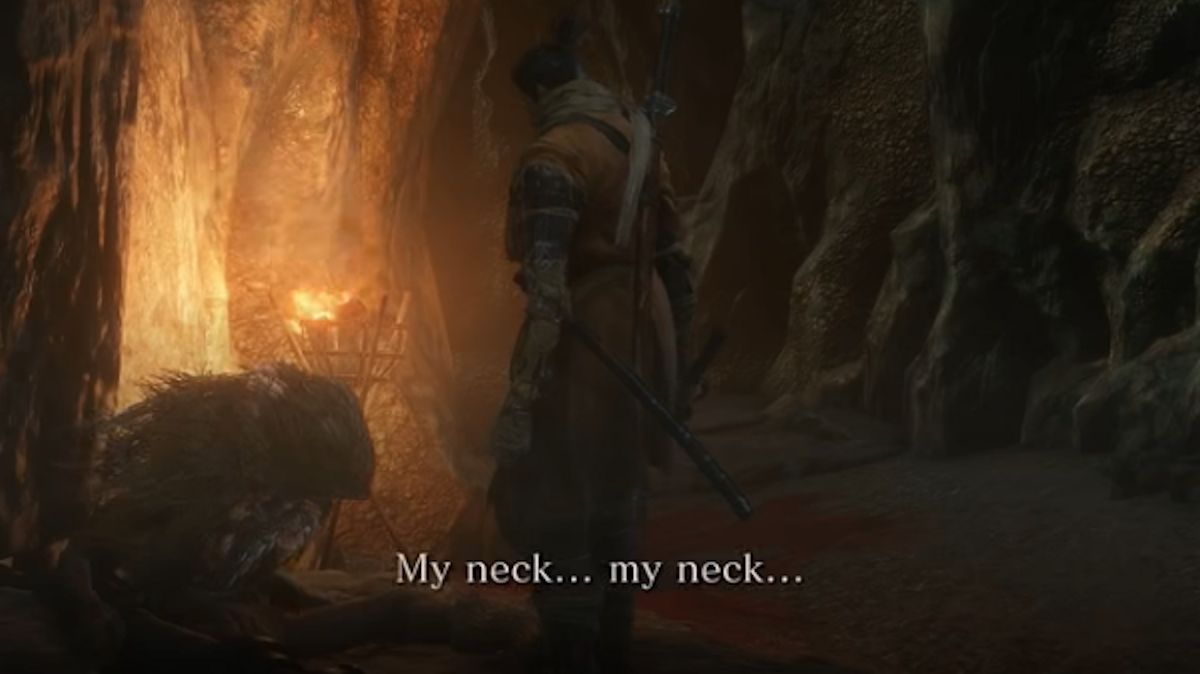
This translation mistake wasn’t lost on Japanese players:
The English in this game is so bad lol. When you talk to the rifle guy right before the ape, he says “my neck… my neck…” instead of “its head… its head…”
“What do you mean, YOUR neck?!”
Other Comments
I’ve seen complaints about many other topics too, but for the sake of brevity, here are a few other random comments:
You can complain about the translation being “lame” or whatever, but the translation isn’t meant for Japanese players to begin with. I don’t actually know what they (English-speaking players) think about it, though.
It’s less about being “lame” and more like the whole translation is weird to begin with
Whoever translated this game was incompetent
I wonder if the diehard fans overseas know the translation is poor this time
Calling the 桜龍 (sakuraryū, "Cherry Blossom Dragon") the “Divine Dragon” seemed kinda cool
Whoa, they called it the “Divine Dragon” in English? I’m again reminded of how much better Japanese is
This is Skyrim-level crappy translation
The game is filled with so many archaic words and vague phrasing that translating it into English must’ve been insanely hard
When it came out, I wanted to play it with English voices, but there was no voice setting in the options menu, so I considered waiting for an update. I even called FromSoftware, but looking back now I’m glad I played it in Japanese. I watched some English videos after I beat the game, but lines like Isshin’s “face me sekiro” in English really fell flat for me
It seemed weird to me that they left “Mibu” in “Mibu Village” untranslated, but then translated “O’Rin of Mibu” as “O’Rin of the Water”
Yeah, that’s definitely a mistranslation then. I was thinking of playing the English version, but it sounds like it’s not so great.
Final Thoughts
Again, these comments come from just a handful of Japanese message boards and websites, so they shouldn’t be considered representative of all players. Still, it’s interesting to see translation complaints coming from players outside of the translation’s target audience. I can’t think of many instances of the reverse happening – English speakers complaining about English-to-Japanese translation choices. Does that happen at all?
Looking back now at all these Japanese comments, I can’t help but wonder which translation issues native English speakers tend to focus on. Are they the same? Or are they completely different? If you know, please share in the comments!
If you liked seeing what Japanese gamers think about fans in other countries, I have a bunch of other similar articles here!


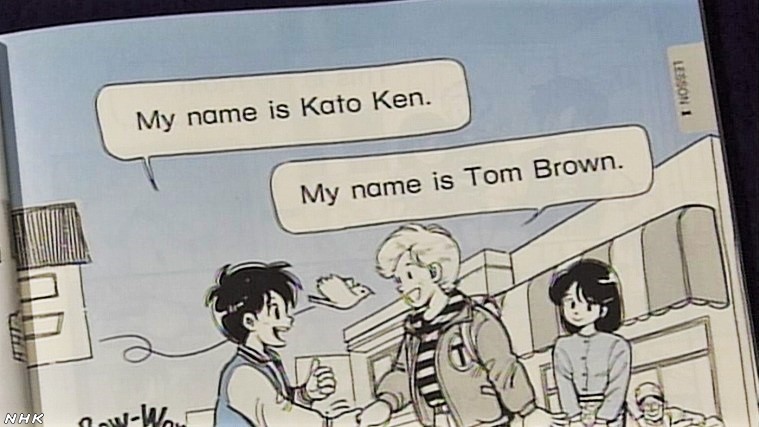

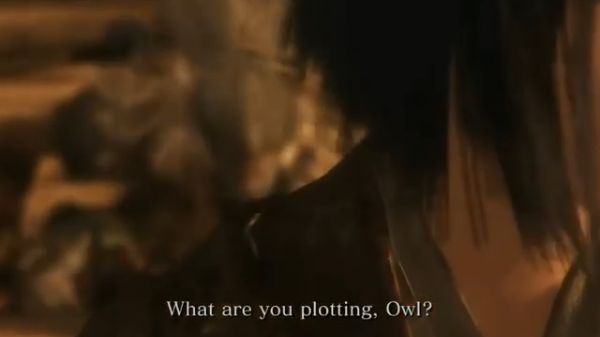

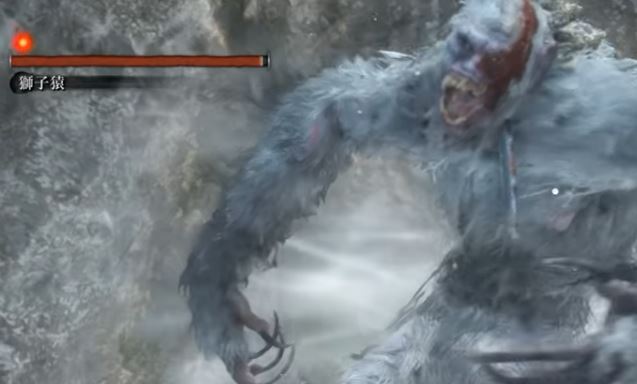
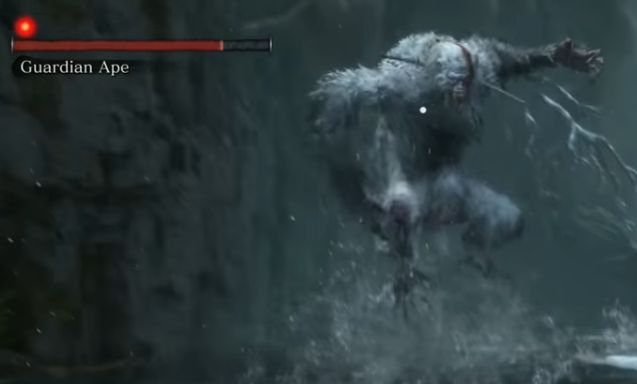
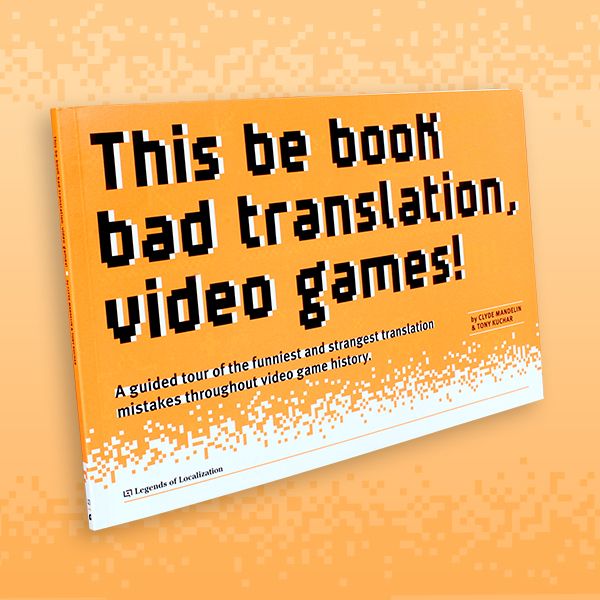
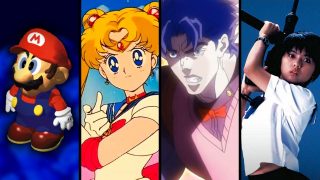
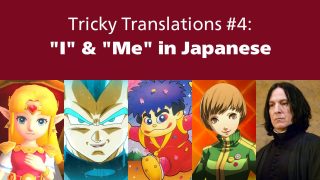
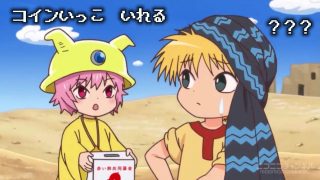
I think I remember being confused by that “My neck… my neck…” line. Luckily that mistranslation wasn’t part of a major plot point. Would have been a cool warning, though.
I do love that more games are giving the option to play with either Japanese or English voice acting. I like being able to hear the different pronouns everyone uses.
“I can’t think of many instances of the reverse happening – English speakers complaining about English-to-Japanese translation choices. Does that happen at all?”
I feel like that’s unlikely simply because not many people in the West learn Japanese so I doubt many people would even have the knowledge to say that a localization to Japanese is wrong/bad, while way more people in Japan learn English (from what I know). It’s partially why I go to this site! I don’t know Japanese, so whenever your articles go into “Japanese localizations of a game originally in English” it’s always a treat because that seems to be criminally undercovered in general
“I can’t think of many instances of the reverse happening – English speakers complaining about English-to-Japanese translation choices. Does that happen at all?”
1) I don’t think there are many games that are a) English-original language, b) That end up translated in Japanese, and c) With translation choices that would be interesting to passionate gamers. I can think of Undertale (the whole Sans pronouns things for instance).
2) Even of those, there’s probably more Japanese gamers that know English than English gamers that know Japanese. We’d need some kind of Japanese-English translator with a blog to post interesting articles about translation choices *wink* *wink*
Looking forward to an eventual Undertale article since I’m really wondering how they translated all those puns.
我 鬼庭形部雅孝なり! (Ware Oniba Gyoubu Masataka nari) is hard to replicate in English due to the fact that, 我 (ware) is a pronoun literally derived from Old Japanese and thus highly archaic/poetic (for the most part preserved in Modern Japanese in expressions such as 我ながら [warenagara] – I dare say; and plurals such as 我ら [warera] and 我々 [wareware]).
なり or properly 也 (nari) is a Classical Japanese verb usually in a confirmatory sense. Thus the English sense is literally “I am Oniba Gyoubu Masataka,” but stylistically could be rendered as “I am he who is Oniba Gyoubu Masataka,” which has a similarly solemn and archaic sound to it.
Maybe “I am he who bears the name Oniba Gyoubu Masataka” or “you stand in the presence of Oniba Gyoubu Masataka”..?
I guess we don’t have any difference in “my name is” based on time period, so you’d have to rephrase it to something else that does sound old fashioned.
Ooh, great recommendations. I’d much prefer one of those to the name drop we ended up getting. Oh, but am I no better than these Japanese commenters then…?
Minor correction, seems like I typo’d the boss’ name as Oniba when it’s “Oniwa,”
And, aye, agreed. Bunni’s localisation suggestions give it equally if not more archaic gravitas akin to that in the original. The adjustment of dialogue for it to sound more in the archaic diction of the original is something that From has excelled at it terms of their previous series, Dark Souls and Bloodborne. It ought to be mentioned that there are some exceptions in the Dark Souls games where characters who predominantly speak Elizabethan if error-laden English just speak highly polite Japanese, e.g. Dusk.
This is similar to the line in Persona games 「我は汝、汝は我」/ “I am thee, thou art I”.
They manage to sound old by using thee/thou (which is wrong because those are informal, blame KJV for that). But the “I am” does sound plain on its own.
Reminds me of the whole debacle surrounding “What is thy bidding, my master” where Darth Vader is referring to Palapatine with an informal pronoun rather than a deferential one.
The usage of “thou” as a translation for 汝 is very much on par with its usage in biblical texts, too, though. Little having to do with its historical status as an informal second person singular pronoun and more so to do with its ancient/archaic status.
One could arguably make the case that Vader was referring to Palpatine is a liturgical manner.
As an apropos, the official Japanese dub of SW gives Vader’s line to Palpatine as:
お呼でございますか、皇帝陛下 (You summoned me, Your Majesty?)
All given in sonkeigo (respect speech).
Whether ‘thou’ and ‘thee’ are informal or not, they’re certainly archaic, and I don’t believe 汝 or 我 are particularly respectful words to begin with.
(Also it’s ‘I am thou, thou art I’, and the particular use of ‘thou’ and ‘you’ in the KJV is ‘thou is singular, you is plural’ – an even older usage.)
Hmm…perhaps ‘I am the one called Oniba Gyoubu Masataka.’
There aren’t many native English speakers who could comment on or have an opinion of English to Japanese localization because, as has been pointed out, few people who speak English as their native language are taught Japanese.
Furthermore, those that do like myself, often work in localization. I can only speak for myself, but when I see English to Japanese localization, or vice-versa, I’m usually not looking at the translation as a consumer, but someone who can sympathize with the minutiae of localization.
So I’d bet that if you were to get a decent count of English speaker opinions on Japanese localization, you would probably find the exact opposite reaction to Japanese fans reacting to English localization.
On top of that, I personally prefer the subdued, and subtly menacing title localization on characters like “Guardian Ape”. To non-English speakers it may seem plain, but translating the character as “Lion-ape” or something would be really goofy in English. Due to the differences in culture and how translation is done, many From Software characters would be seen as less menacing or mysterious if they were given literal Japanese translation.
This reminds me of how character titles are translated in Thunderbolt Fantasy, where in English you have “The Bones of Creation” or “Screaming Phoenix Killer”. It works, I think, for that series, since we’re talking about high action bunraku tokusatsu in high-fantasy. That would not work in a From Software title (except Metal Wolf Chaos).
That actually reminds me of English fans who rag on Anime translation that bump against these issues, and they often complain about translations that would be worse when done literally. So, considering that, maybe English fans would also be angry that Shishizaru is just Guardian Ape. Just as keikaku.
i also wouldn’t be surprised if the connotations of the word “guardian” didn’t come through in that comment. maybe it’s an artifact of what kinds of media i consume the most, but the immediate association i make there is “guardian angel”, which makes “guardian ape” sound like a more serious opponent than it might if you’re just looking at the word guardian in a dictionary, or in an english-as-foreign-language textbook.
It made me think of tomb guardians in a fantasy context, although someone else might think of ‘parent or guardian’, or a certain newspaper. But yes, ‘guard ape’ wouldn’t have the same nuance.
It ought to be noted that 獅子 (shishi/”lion”) has more of a connotative/poetic enhancement of the subject noun 猿 (ape), that is something akin to “Behemoth Ape” or “Behemoth Simian.”
獅子 itself refers originally to the guardian spirits/dogs that you see besides temples, hence “guardian” applies that sense in the translation of the boss name.
“Fierce Ape/Monkey/Simian” likewise carry the sense. Again, the ape possesses leonine traits that warrant the name. The choice of “guardian ape” seems to be to be a compromise in order to evoke the ominous status of the boss.
I find it quite hilarious that a small flock of squawking Japanese gamers think they understand English better than native English speakers. XD
The aside about how Japanese speakers think “my name is” is overly formal or even archaic English is baffling. I wonder how that came about, or what they imagine the informal equivalent is.
It’s the other way around. They’re saying that it seems too modern for the formal/archaic nature of the line being translated.
Some are saying that, and others are arguing that it’s fitting because “my name is” is supposedly “formal” or “outdated” or “how you start a self-introduction before giving a speech.” Mato also said “there’s actually a recent trend in Japan against teaching the phrase ‘my name is’, because it’s supposedly wrong, weird, and/or outdated” before the quoted messages.
I don’t think I’ve ever introduced myself with a ‘My name is’. Usually I just say ‘I’m …’. Don’t think I hear it much from other people, either.
My name is (what?)
My name is (who?)
My name is (chicka-chicka) Slim Shady.
lmao, that immediately came to mind when I read the “‘My name is ___’ is a pretty outdated expression” comment. Like, “oh god, am I so old that Eminem is outdated now?”
I see I’m not the only one who thought that.
わがなはスリムシェディー.
As a native Spanish speaker who speaks fluent English since I was 12 or so and spends most of my time speaking in English, “my name is” definitely sounds on the formal side, and I dom’t think I’ve ever said it
I think it’s more along the lines of “My name is ___” isn’t as versatile as “I’m ___” so if someone was to know only one of those it’s better to know the latter.
Reminds me, in high school French, we were repeatedly told that no-one says “mon nom est”(my name is). So when I decided to play Pokémon Mystery Dungeon: Explorers in French and saw several uses of “mon nom est”, I assumed it was a rushed, word-for-word translation of the English version until someone on Reddit pointed out that it’s common in lower reading levels.
What I’m interested in is why formality would be a BAD thing in this context. Should a warrior announcing his name not be a bit formal, here? Being polite and being formal aren’t necessarily the same thing, after all.
(“My name is …” sounds slightly formal compared to “I’m …”, but not enough to matter in any casual setting. Native English speakers aren’t going to notice either way, most likely).
“I can’t think of many instances of the reverse happening – English speakers complaining about English-to-Japanese translation choices. Does that happen at all?”
This isn’t video game related, but it happens in the Transformers fandom. English-speaking fans HATE how every Japanese dub fromn Beast Wars onward is a juvenile gag dub, regardless of how serious the original show was. The Beast Wars dub is the most infamous, which you can read about here: https://tfwiki.net/wiki/Beast_Wars:_Transformers_(cartoon)#Japan
Hmm, the comments about if they should have left ふくる and 狼 in Japanese is so baffling to me. In Japanese, it’s very obvious that those are code names, but an English speaker wouldn’t be able to realize that without looking it up, so of course they should be translated?
Yeah, I feel like if it’s a code name and they wanna leave it untranslated, they’d have to add more dialogue explaining that it’s a code name, otherwise that entire aspect would get lost. If Snake is indeed still Snake in Japanese and not Hebi, I’m assuming the Japanese version did have some sort of “that is his codename” dialogue…
Even the English version clarifies it’s a codename, in the first cutscene of the the original Metal Gear Solid!
Campbell: “(…)and finally, in charge of them… FOXHOUND squad leader, Liquid Snake.”
Snake: “Liquid Snake…”
Campbell: “The man with the same codename as you.”
“They should’ve just left it as ‘Fukurō’ and let foreign players look up the meaning for themselves”
Hoo boy, now doesn’t that sound like something I’ve heard way too many times from English-speaking purists in the past.
Keeping it as “Fukuro” and “Ookami” rather than “Owl” and “Wolf” defeats the purpose and significance of their pseudonyms, since it refers to aspects of their personalities, i.e. Owl being a mentor character and his design has owl-like elements to it, Wolf being a solitary existence whose only master is the young Lord Kuro.
Similarly taking the other approach, one could literally translate the characters personal names thus Oniwa Gyoubu Masataka would be “Ogre-Garden Section-Chief Elegant-Filial,” which sounds not only clumsy, but absurd as it is a personal name, rather than a descriptor. I will however say that Gyoubu could have been translated as it originally was a position within the Japanese system during the middle-ages, most famously used by Yoshitsugu Otani.
Speaking of “my name is” and reacting to translations not in one’s native language: last year, I was replaying Pokémon Mystery Dungeon: Explorers of Time in French in hopes that it would help me learn the language, but it was such a literal translation that I ended up skim-reading it. For example, characters consistently say “mon nom est…” (my name is…) instead of “je m’appelle…” (I am called…). The only non-literal thing I noticed was that the M(r). Mime in Treasure Town during the post game says short English words for some reason.
I forgot to mention, it was a literal translation of the English script. All Pokémon games were localised into European languages like this until Black and White, and the anime still is.
‘Mon nom est’ is basically only used in contexts like ‘My name is Ozymandias …’, right?
It does sound theatrical, yes. Not something you would use to introduce yourself in normal circumstances, even to a large audience. Looking it up, it seems to be more common in Canadian French, but frowned upon because it’s seen as a clumsy word-for-word from English.
What other options could they have used for the name? They could have used “I am called !”, which is not as common.
Maybe “They call me !”. Alternatively, use the third person.
I guess they could have used old English, but that would have been a bit too strange.
More importantly, putting Old English in a game is like putting in German text and expecting English speakers to understand it.
“You stand before…!” or something similarly pompous would have been my pick, probably, considering how antiquated 我が名は is
(oops, it’s just 我, i was being too modern with my outdated Japanese!)
That was my thought too.
我 なり is arguably even more archaic than 我が名は, though.
In Europe when making a statement entering a battle you didn’t shout an introduction, you had theme music, like bagpipes that can be heard over an absurd distance, constant, droning, louder and louder before your even in sight.
Also drums and horns. If you had a particular horn blast, rhythm, or cadence you would blow at the start of every battle. But those were also usually not for important commanders, but for the entire group, or country you were fighting for.
Formal battle ground introductions weren’t really a thing. Maybe the formality of court introductions among warring nations would be a better reference point.
Probably worth mentioning, “Old English” is a lot older than people tend to think, early modern English is what would have existed in the 1600’s and I have a feeling having him speak early modern english would have too easily skewed into sounding like a comedy dub.
Indeed, when Old English refers to the Anglo Saxon that was spoken during the 700s to 1066 in England, whereas Early Modern English was spoken from around 16th century and onwards. Middle English gaps the area between the two.
I don’t think it would necessarily be like a comedy dub. Early Modern English isn’t quite different enough if you don’t devolve into slang. For something like Sekiro where there’s not a lot of story and there’s little in terms of comedy anyway, you wouldn’t be getting into anything too ridiculous. Mostly some dated conjugations like using “thou/thy” when referring to someone familiar, or maybe derisively – there’s not a ton of dialogue in the game.
Agreed. If executed well enough it certainly avoids that. Furthermore the previous From games have used Elizabethan English, whereof the Dark Souls 3 and Bloodborne (to a point) did it beautifully and it also fitted the atmosphere of the game. The diction of the original Japanese in Sekiro has already archaic nuances to it, so I don’t see why they couldn’t use Elizabethan English for it.
“Well, English doesn’t have as many words as Japanese, after all.”
Oh, you naive, innocent, greenhorn ingenue, you.
They probably saw that the biggest Japanese dictionary (Daijiten) has more entries than Oxford and assumed that’s a good way to measure a language’s vocabulary (in truth there is no good way to measure a language’s vocabulary).
And how many of the words in that dictionary are English loanwords, I wonder…?
I feel like Japanese dictionaries are bigger cos they have three language scripts and multiple meanings for different kanji, and such. I think English is more bloated with actual words that all mean the same thing…
That wouldn’t cause Japanese to have more entries.
I felt Skyrim’s Japanese text was noticeably flatted in parts. The shopkeep response dialog and battle quotes are the ones repetitive enough to notice. Lots of battle cries that are more distinct in English all become ___のために. (There’s also ice mages shouting “燃えろ!”, but that’s a problem in English too)
Oh just remembered another one in Saints Row 2 which I played in that language to find out how the handled the “speak English” gag (It was just translated literally). When you meet Pierce his introduction “Sup, I’m Pierce” is done as “ボクはピアース”. In addition to the leading “Sup”, Pierce’s character is basically the personality of a wantabee gangster on a character that’s actually successful as one (or at least becomes one), so this comes off as really mild.
Why do you not post the sources for these internet comments? The comments could have come from anywhere and I think establishing full context for this sort of thing is kinda important.
I did post the sources in the article, near the beginning.
To me, Gyoubu Masataka Oniwa’s english introduction sounds like you got his name name wrong previously and he was very mad about it. And early modern english translation for this line wouldn’t have worked, it would sound like an American making fun of the accent of someone from the north of England. Maybe something along the lines “You face Gyoubu Masataka Oniwa”.
I don’t understand the idea of someone using Early Modern English coming off as mocking an accent when, indeed, it might be a more accurate way to translate something like this, which uses historical language in the original Japanese.
I wasn’t personally bothered by the “My name is…” introduction, though I think it could have easily just been “I am…” if not something more like what you suggest.
Something I notice when comparing English to Japanese is that Japanese has a lot of words for things like level of politeness and how one refers to oneself, but English does much of this through context and tone of voice. In this case, a man confidently yelling “I AM GYOUBU MASATAKA ONIWA!” might use the same words as any ordinary person introducing themselves, but it doesn’t necessarily carry the same feeling.
If there’s anything to learn, it’s that what truly bridges cultural borders is people acting like they know more about video game translation than they actually do.
The one commenter is right in that “my name is” only bothers them because of elementary school English class rather than anything actually wrong with the line itself, though.
I agree with you.
The first ideas that crossed my mind are “Mine name is”, or “This/Here be”,
“Mine name” isn’t historically attested. The use of “mine” instead of “my” used to follow the same rules as “an” vs “a”.
“This be” and “Here be” were dialectic, never the standard formation in mainstream English. (Though they’re attested more than their prevalence would have suggested because it was Shakespeare’s dialect.)
Something else language-related in Sekiro that I think deserves a mention is the boss “Long-arm Centipede Giraffe”. First off, it is one of those names where it’s really noticeable that FromSoftware has someone translating who keeps the Japanese way of referring to people with titles, even if it’s awkward in English (I saw someone give the example of “Executioner Smough” from Dark Souls being technically correct in English, but less natural and grammatically accurate than “Smough the Executioner” would be).
Secondly, I’m wondering why his name is Giraffe. Apparently in the Japanese version his name is 長手の百足・ジラフ, (Long-Arm Centipede – Jirafu), and I’ve heard that this is the same katakana as the word “giraffe” in English, but I feel like translating this to “Giraffe” was probably not the right thing to do. The translator may have been thrown off by other characters having animal code-names, but they were all in Japanese, not English katakana, and having the names based on English words wouldn’t make sense anyway considering the historical setting. I would find it excusable if this was a joke character, but there’s no indication that this is the case unless Miyazaki or someone literally just wanted to have a joke NAME.
Has no one mentioned yet that “my name is” in “English from Shakespeare’s time” would be… “my name is”?
“Make but my name thy love, and love that still,
And then thou lov’st me, for my name is “Will.””
-Sonnet 136
And if they were to go with actual Old English, it would be “Ic hāte”, which might be understandable to a Scandinavian or a German, but not to most English speakers.
Right.
For Japanese speakers, “Old-fashioned Japanese” is common knowledge in entertainment piece, but Old English is a kind of special knowledge for English speakers.
Since I read this article a while back, this line keeps coming back to my head:
“Did they seriously switch his family and given name order in his introduction? Talk about shitty. Who localized this?”
I find it interesting because that is very frequently done. And it makes sense because we in English give our family names last; we literally call them ‘last names’.
But even then it’s not *always* done, I’ve seen it go either way in anime subtitles (and I get confused because of it), and I see ‘Hatsune Miku’ much more than I see ‘Miku Hatsune’. But I don’t think I’ve ever read ‘Miyamoto Shigeru’ instead of ‘Shigeru Miyamoto’.
Personally when translating, I prefer not to flip Japanese order names for fictional characters. They’ve been designed to sound good as is – “Hatsune Miku” is easier to say out loud than “Miku Hatsune”. That doesn’t apply to real people as much so you’d usually flip them, which does make it confusing. I’ve seen Japanese people write their family name in all caps to avoid this.
Sometimes you can’t tell what character designers are going for. In Madoka everyone’s family name is a typical first name (Kaname, Akemi, Sakura, etc). In One Piece the names are actually in Japanese order! Edward Newgate’s family name is Edward.
I don’t particularly mind either, but I wish some games were more consistent across the series. Steins;Gate uses Family Given in the original, but switches to Given Family in the sequel, and it feels weird when you’re used to the original names.
I also prefer sticking with Family Given if there is Japanese audio, as hearing Family Given but reading Given Family can be really jarring.
Thanks for this. I noticed a few things like that– you have to choose between Kuro and Fukuro, which gets lost– so I wondered how many more there were.
The dragon being explicitly of the tree is a big deal in terms of figuring out what actually is happening up there, it seems like.
“Ryuin” became both “dragon’s blood” and “dragon’s heritage” which makes me think it doesn’t say ‘blood’, the natural way to express that in English, but at some point the translator noticed it literally was blood they were talking about.
Translator’s note: Fukuro means Owl